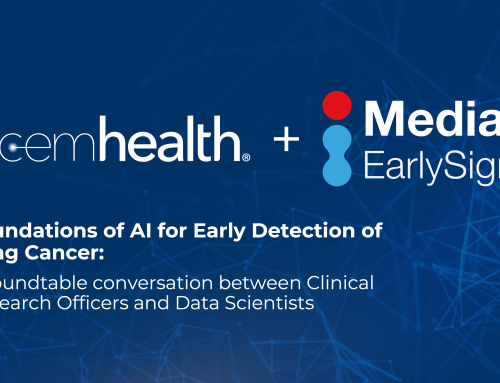
Building an End-to-End AI Platform for the Healthcare Industry
Over the past few decades, artificial intelligence (AI) has evolved from an abstract sci-fi fantasy into an ever-present reality in our daily lives. Although AI has proven far less ominous than many of our favorite Hollywood depictions (knock on wood), the rapid expansion of AI has led to a 115% increase in global investments since 2020[1] and continues to gain attention from every major industry, government, and corporation around the world.
But challenges in innovation, technology, and mindset have clearly slowed the adoption of AI in healthcare[2] and raised important questions about what it will actually take to create viable AI tools and solutions for clinicians. So how should AI operate in the healthcare industry? And what’s the best way to turn AI into a practical, powerful tool for improving patient care?
The short answer involves building a technology platform that’s dedicated to accelerating AI deployment, adoption, and continuous improvement for all healthcare organizations, regardless of their size or AI maturity level. So let’s look at three key characteristics and capabilities any clinical AI platform needs to possess to succeed and thrive in the real world of healthcare.
Characteristic #1: Neutral, open, and agnostic
Today, an undeniable gap exists between AI developers and the ever-evolving clinical needs of healthcare professionals. An AI model might be able to generate valuable predictive clinical insights, but front-line clinicians are just as concerned with questions about privacy, clinical workflows, and practical implementation.
To address these concerns, a viable AI platform needs to remain neutral, open, and agnostic to meet the diverse needs that exist across a broad spectrum of healthcare applications and organizations. From university research departments and data scientists in academic medical centers to commercial development and digital health companies, AI healthcare solutions should offer secure, unbiased, and practical solutions for clinicians and their patients.
Characteristic #2: Multi-modal and multi-model
The key to any successful AI system lies in access to data—and lots of it. Healthcare organizations need a safe, systematic way to access and combine data from countless isolated sources to create meaningful AI insights.
If you think this sounds like a daunting task, you’re absolutely correct. Data privacy, mixed technologies, and limited budgets put massive constraints on any organization’s ability to access, integrate, and analyze healthcare data. But an AI platform with secure access to data across multiple systems and modalities will allow healthcare professionals to integrate virtually any data with any algorithm—and any algorithm output with any workflow or application.
Characteristic #3: Collaborative and trustworthy
Lack of trust is likely the biggest challenge clinical AI faces today, which also makes trust one of the most important characteristics for any healthcare-centric AI platform. To build that trust, clinicians need insights into how AI models are developed and proof that those models are generating valid, unbiased results and clinical insights. Regular collaboration and proactive feedback loops between data scientists, AI engineers, and clinicians will be critical as we work to bridge the traditional gaps between the language of algorithms and the language of care.
From fantasy to function
Compared to other industries, AI in healthcare still feels more like a sci-fi fantasy than a real-world opportunity. But with a platform-based approach that focuses on overcoming well-documented challenges, we’re ready to build trusted AI solutions that lead directly to better care and improved outcomes for patients everywhere.
Learn more about how this platform approach works and the challenges it addresses:
[1] https://venturebeat.com/ai/report-ai-investments-see-largest-year-over-year-growth-in-20-years/
[2] https://www.brookings.edu/research/why-is-ai-adoption-in-health-care-lagging/
